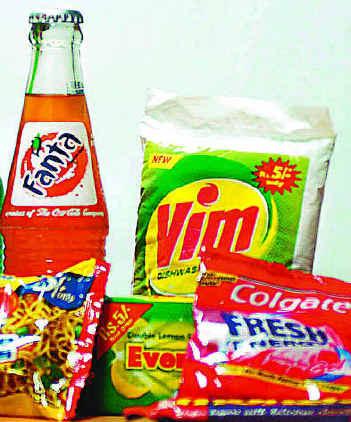nglo-Dutch consumer goods major Unilever is exporting Hindustan Unilever’s innovative rural distribution model led by women’s self-helpgroups to several developing world markets.
Launched in 2001, the initiative, Project Shakti , helped HUL reach the so-called media-dark regions by turning rural women into direct-tohome distributors of its mass-market products.
With emerging markets contributing roughly 44% to global revenues, Unilever—a Fortune 500 foods, home and personal care product giant with operations in about 100 countries—is betting on Project Shakti to reach to the bottom of the pyramid in Asian, African and Latin American markets.
The project is being customised and adapted to Sri Lanka, Vietnam and Bangladesh. In Bangladesh and Sri Lanka, it is being promoted as Joyeeta and Saubaghya, respectively.
The effort is expected to help Unilever tap fresh growth avenues in emerging markets in the face of recessionary trends in the US and Europe.
The rural micro-enterprise has helped the Rs 13,717-crore Hindustan Unilever to push growth rates in several categories such as personal wash, fabric wash, shampoos, oral care and skin care. Brands like Annapurna, Lux, Lifebuoy, Breeze, Wheel, Fair & Lovely, Lakme, Ponds, Clinic Plus and Pepsodent have sold good numbers in smaller markets, company sources said, Overall, around 50% of HUL’s revenues came from the rural markets in India.
The project was started in 2001 to empower underprivileged rural women by providingincome-generating opportunities, health and hygiene education. Shakti’s ambit already covers about 15 million rural population. Several rural pockets are populated by less than 2000 individuals but are seen as unreachable and remain untapped by consumer goods makers.
Rural women are appointed as Vanis (communicators ) and trained to communicate in social forum such as schools and village get-togethers .
Shakti operates in fifteen states: Andhra Pradesh, Karnataka, Tamil Nadu, Gujarat, Madhya Pradesh, Chattisgarh, Maharashtra, Uttar Pradesh, Punjab, Haryana, Rajasthan, West Bengal , Bihar, Jharkhand and Orissa.
There are over 45,000 Shakti entrepreneurs covering over 135,000 villages across 15 states.
Industry officials say the awareness of rural consumers about products and brands is lesser than the urban markets. Also, urban business models are not really successful in tapping the full potential of several small clusters of consumers across remote markets.
REACHING TO THE BOTTOM
Project Shakti is a low-cost distribution network HUL launched in 2001 in tie-up with rural women’s self-help groups A typical Shakti entrepreneur gets an income in excess of Rs 1,000 per month Project Shakti serves over 1,35,000 villages across 15 states through more than 45,000 entrepreneurs.
Subscribe to:
Post Comments (Atom)





No comments:
Post a Comment